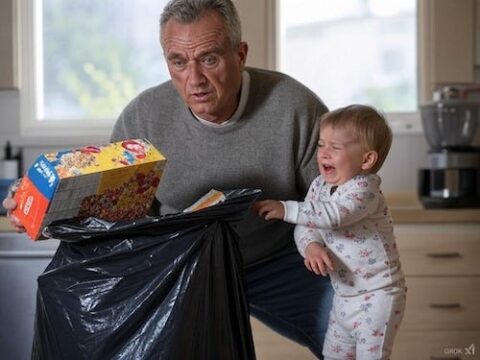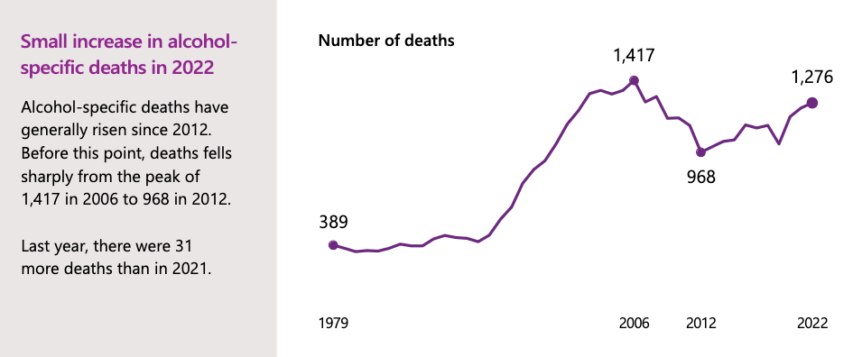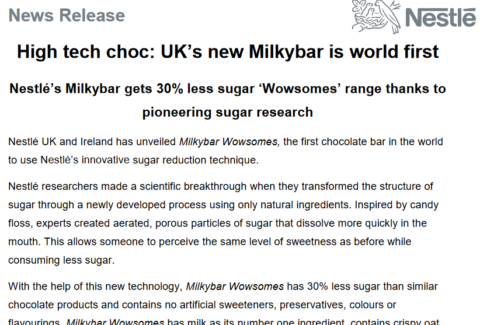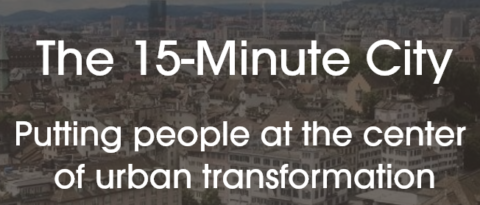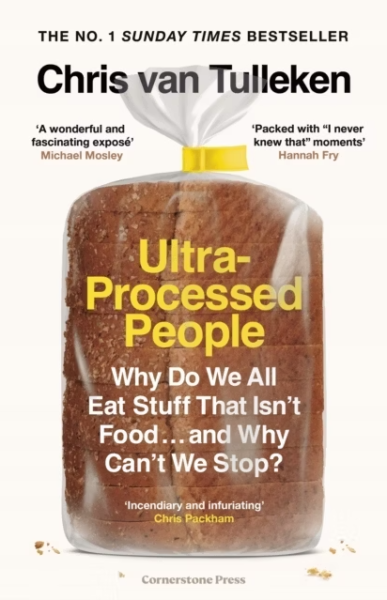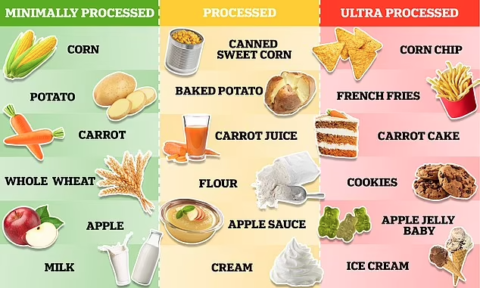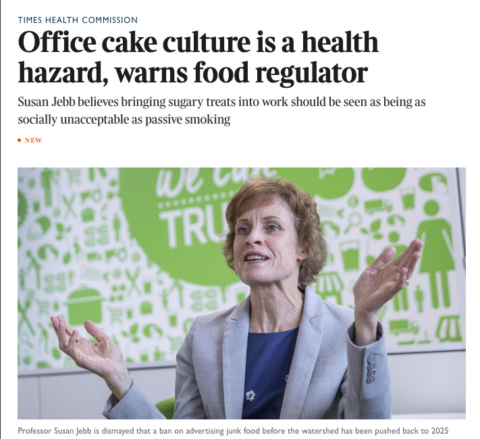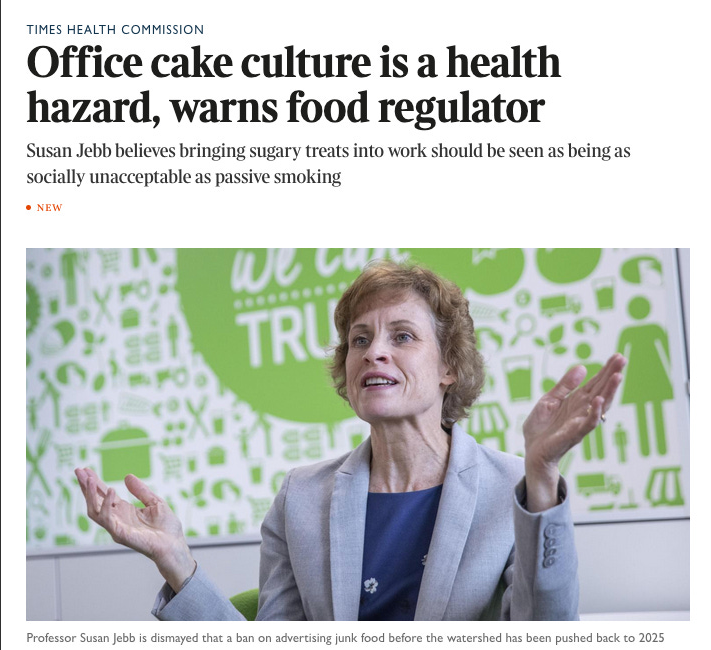At Velvet Glove, Iron Fist, Christopher Snowden pokes gigantic holes in the stated justification for the latest Canadian drink consumption recommendations (also mentioned in this post yesterday):
Canada is on the brink of making itself an international laughing stock by cutting its drinking guidelines from two drinks a day to two drinks a week. The previous guidelines were only set in 2011 so Canadian drinkers can be forgiven for being suspicious about this dramatic change. The evidence base has not significantly changed in the interim. The evidence for the health benefits of moderate drinking has continued to pile up.
The only thing that has really changed is that neo-temperance zealots like Tim Stockwell have tightened their grip on alcohol research. Stockwell and his “no safe level” pal Tim Naimi both live in Canada and are both authors of the report that has made the ludicrous new recommendations.
I have been saying for over a decade that the “public health” plan is to get the guidelines down to zero so they can start regulating alcohol like tobacco. The evidence does not support this fundamentally ideological campaign and so the evidence has been dropped in favour of fantasy modelling and cherry-picking.
[…]
A Canadian “standard drink” contains 13.45 grams of alcohol. Three standard drinks equals 40 grams. Four standard drinks equals 53 grams. The meta-analysis has no data on people who drink so little, so the claim that colon cancer risk increases at three or more standard drinks is not supported even by the authors’ own preferred source.
As for breast cancer, which can only affect half the population and is partly why most countries have different guidelines for men and women, the report cites this meta-analysis of 22 studies, 13 of which found no statistically significant association with drinking. It pooled the studies and reported a 10 per cent increase in risk for people drinking 10 grams of alcohol a day. As with the colon cancer study, this was the minimum quantity studied so it tells us nothing about Canadians who drink 3-5 standard drinks.
In terms of mortality, another meta-analysis found that light drinking was not positively associated with any form of cancer, including breast cancer, and was negatively associated with cancer in a couple of instances […]
As countless studies have shown, heart disease and stroke risk is substantially reduced among light and moderate drinkers. For example, a meta-analysis of prospective cohort studies (which track people’s drinking habits and health status over a number of years and are the most reliable studies in observational epidemiology) found that drinkers were 25 per cent less likely to die from coronary heart disease than teetotallers. The evidence for strokes is similar.
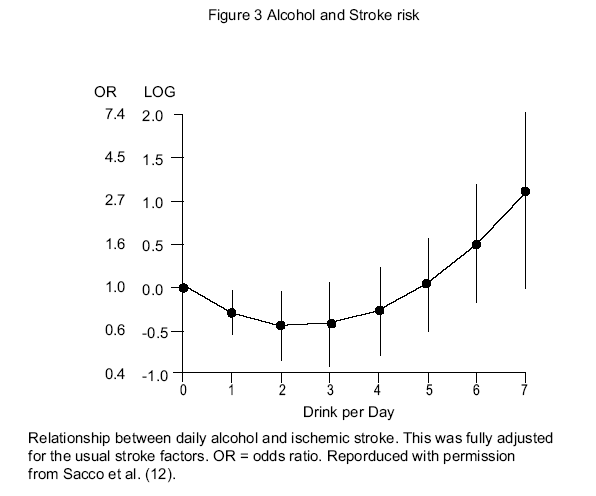
This is main reason why life expectancy is longer for moderate drinkers and the relationship between alcohol consumption and mortality is J-shaped.
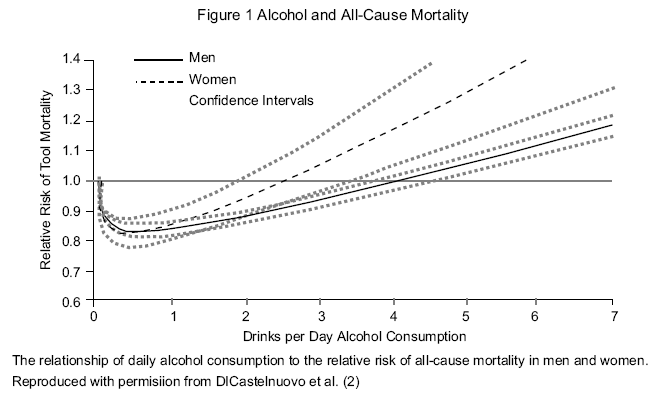
The authors of the Canadian report essentially ignore all this evidence and instead focus on a cherry-picked meta-analysis written by Stockwell, Naimi and pals which massively adjusted the figures to arrive at their desired conclusion. This is inexcusable.
At The Line, Jen Gerson points out the utter absurdity of public health officials doing their best Carry Nation bar-smashing imitations while at the same time pushing for “harm reduction” policies for cocaine, heroin, and other illegal narcotics:
“The guidance is based on the principle of autonomy in harm reduction and the fundamental idea behind it that people living in Canada have a right to know that all alcohol use comes with risk,” noted the CCSU and, hey, yeah!
I like to understand my risks so that I can make informed decisions.
But you know what else poses significant risk?
Lots of morphine and cocaine.
I think this is generally known. But God help you if you want to engage in a conversation about the risks society might be courting with safe supply or even harm-reduction strategies, and have fun being labelled a Conservative troglodyte who just wants suffering addicts to die in the street. You’re probably just a rich, callous asshole who opposes all of these evidence-based policies who blows second-hand smoke into the faces of your children while drinking your sixth beer of the night at the local pub. Just shut up and pick up those discarded needles in your yard, you monster.
I was picking on Health Canada previously, but they’re hardly the only ones who display a bizarre split-personality on these issues. Any story by or on the CBC on the matter of alcohol use now sounds like something straight out of the Women’s Christian Temperance Union. Yet just try to find critical reporting on safe consumption sites or safe supply policies. Almost all of it is uniformly glowing.
[…]
Obviously, I don’t think that our public-health officials are telling Canadians that heroin takes the edge off a hard day better than a glass of red or a pint of beer. But did we learn nothing over the course of the pandemic about the importance of consistent and clear public-health communications? The target audience for this is not those who have carefully studied harm reduction and substance use disorders. It’s people who just like to have a drink with dinner.
If our governments want to maintain any credibility, they can’t be uptight about how many glasses of pinot noir we drink, and then appear to be loosey goosey on heroin. It’s just impossible to take that kind of suck-and-blow at face value, but that’s exactly how this messaging will come across to people who aren’t closely engaged with this issue. “The government wants to give free hard drugs to junkies but thinks my cocktail is a problem?”
